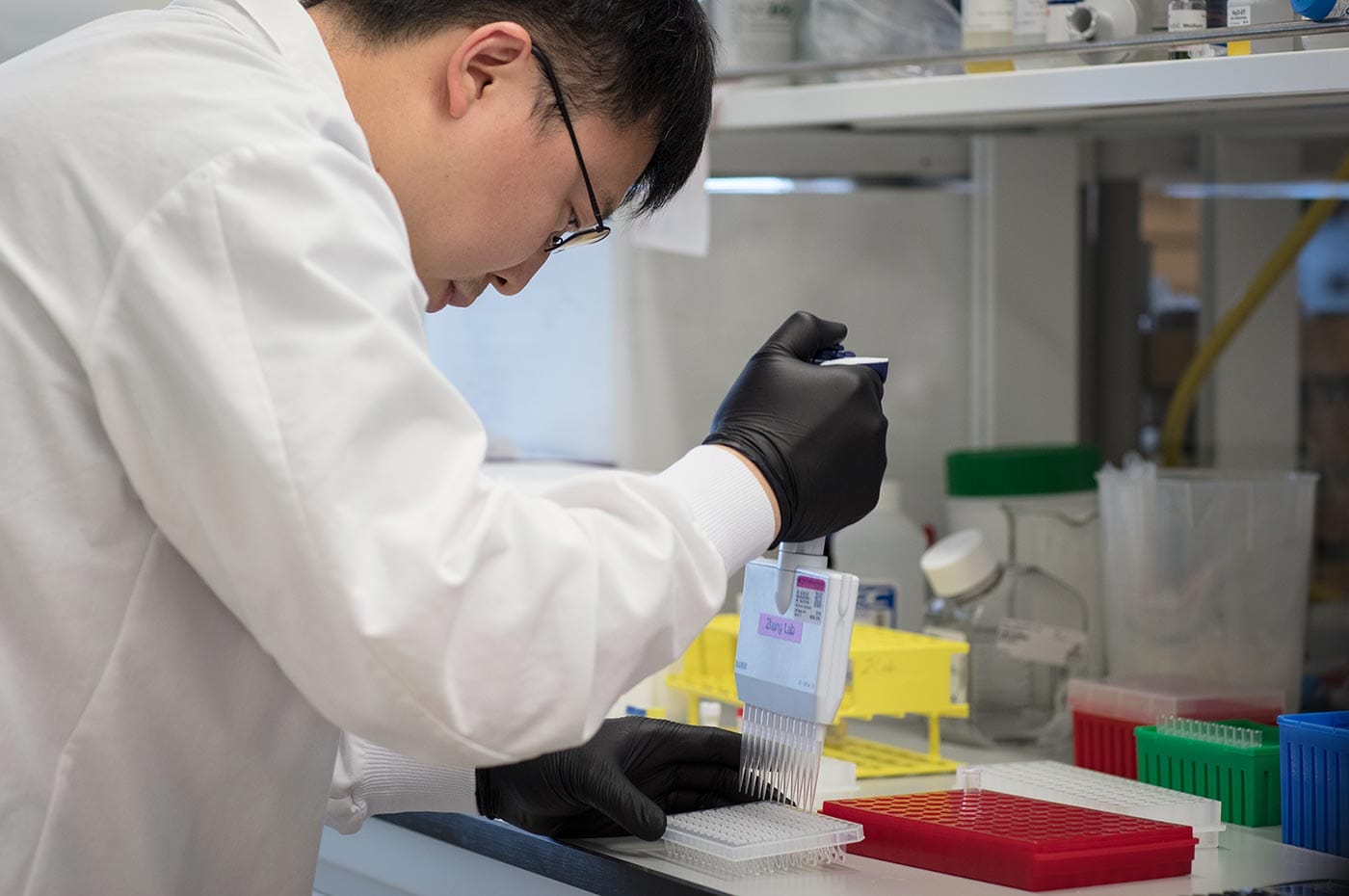
The timing couldn’t have been worse. In March, just as Thailand’s coronavirus outbreak began to ramp up, three hospitals in Bangkok announced that they had suspended testing for the virus because they had run out of reagents. Thai researchers rushed to help the country’s clinical laboratories meet the demand. Looking for affordable and easy-to-use tests, systems biologist Chayasith (Tao) Uttamapinant at the Vidyasirimedhi Institute of Science and Technology in Rayong reached out to an old acquaintance: CRISPR co-discoverer Feng Zhang, who had been developing an assay for the coronavirus inspired by the gene-editing technology.
Related News
March 21, 2018
Feng Zhang: From ESL to Revolution
Credited with the development of transformative technologies such as CRISPR, Feng Zhang delights in helping others realize their potential. “Every person has their own creativity and their own way of thinking about problems,” Feng says. “That’s part of the joy too, seeing how you can help people realize an even bigger impact.”

May 2, 2023
Katalin Karikó Wins a 2022 Breakthrough Prize in Life Sciences
Learn all about the scientist behind the game-changing mRNA vaccine, which helped fight the unprecedented COVID-19 pandemic.

March 22, 2019
Amit Choudhary: Quantum Physics, Binge-Eating Snakes, and More
Creative Promise Prizewinner Amit Choudhary is used to crossing borders and breaking boundaries.

You may also be interested in
Feng Zhang
Feng Zhang receives the Vilcek Prize for Creative Promise in Biomedical Science for using light to manipulate the activities of brain cells in living animals and for enabling rapid alterations to the genomes of living organisms.

Harris Wang
Harris Wang receives the Vilcek Prize for Creative Promise in Biomedical Science for the development and application of Mutiplex Automated Genome Engineering (MAGE), a platform to track, program, and engineer entire microbial communities and ecosystems for a range of diagnostic and therapeutic applications.

Amit Choudhary
Amit Choudhary receives the Vilcek Prize for Creative Promise in Biomedical Science for the identification of a fundamental force integral to the structures of biomolecules like proteins and DNA, and for improvements upon the genome-editing tool CRISPR-Cas9.
